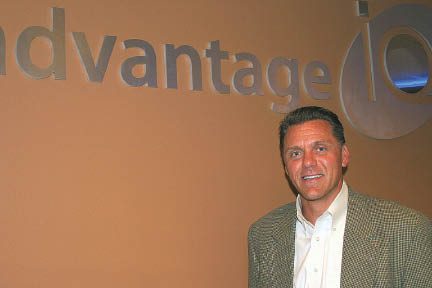
Home » Avista sees eventual IPO at subsidiary
Avista sees eventual IPO at subsidiary
Advantage IQ's board undergoes revamping to prepare for future

November 20, 2008
Executives at Avista Corp. and its Advantage IQ subsidiary long have talked about taking Advantage IQ public or exploring other ways for Avista to capitalize on its investment in the subsidiary. Now, they're getting more serious about it.
"We really would like to grow the company so we could do an IPO in the next two to three years," says Avista Executive Vice President Malyn Malquist, who is executive vice president of both Advantage IQ and Avista and until recently has been a member of Advantage IQ's board. An IPO, or initial public offering, is the first stock offering a company makes to the public, through which it becomes publicly traded.
"We need to reach a level of $100 million in annual sales" to go ahead with an IPO, Malquist says. "We are looking at some small-sized potential acquisitions to grow the company more quickly."
Last year, Advantage IQ posted $47.3 million in revenue, up from $39.6 million in 2006. Through the first nine months this year, Advantage IQ's revenue climbed to $41.7 million, up by 20.6 percent from the year-earlier period.
"We're going to try to grow the business over the next two or three years," says Stu Stiles, Advantage IQ's president and CEO. "Our business will continue to grow and flourish. We provide a lot of value to our customers."
Although, the company is pursuing potential acquisitions, it also will seek to grow through its own operations, he says.
Advantage IQ, which is located at 1313 N. Atlantic, manages utility bills and other site costs for companies with multiple locations, including many of the nation's largest concerns. At the end of last year, it served 403 mostly Fortune 500 companies that had a total of 199,000 sites. It added 25,000 new accounts, or locations, in the third quarter after adding a combined 11,000 in the first and second quarters. It has a goal of adding a total of 57,000 locations this year.
The company contributed just under $4.7 million in earnings, or 9 cents of Avista's $1.04 in earnings per share, in the first nine months this year, down slightly from slightly less than $5 million, also 9 cents a share, in the year-earlier period, when Avista earned 45 cents a share.
On Sept. 30 this year, however, Avista owned a smaller percentage of Advantage IQ than it did a year earlier because it sold a 25 percent interest in the company in July to the owners of Cincinnati-based Cadence Network when it acquired Cadence. That company helped clients manage their energy expenses and release of greenhouse gases.
"We're four months into combining these two companies," Stiles says. "We're very pleased with how the integration is going."
Advantage IQ hopes to realize more opportunities in the telecom cost-management area, Malquist says.
"We're not particularly strong in telecommunications," he says. "A lot of our clients are saying, 'We want you to do more in telecommunications.'" Stiles has a solid background in the telecommunications industry, in which he worked for years, Malquist says.
To prepare for Avista's effort to capitalize on its investment in Advantage IQ, the subsidiary has revamped its board "with an external focus," Malquist says. It has added Jeff Lieberman, of Incite Partners, a New York venture capital fund that was the majority owner of Cadence Networks; John Kelly, a director of Avista and former CEO of Alaska Airlines; and Erik Anderson, an Avista board member who's also president of West River Capital, a Seattle-based venture capital firm. Malquist and Marian Durkin, Avista's general counsel, left the board.
The previous owners of Cadence Network can exercise a right to redeem their shares of Advantage IQ stock during July 2011 or July 2012 if Advantage IQ hasn't gone through an IPO or been sold to a third party by those dates, Malquist says.
Latest News
Related Articles




![Brad head shot[1] web](https://www.spokanejournal.com/ext/resources/2025/03/10/thumb/Brad-Head-Shot[1]_web.jpg?1741642753)